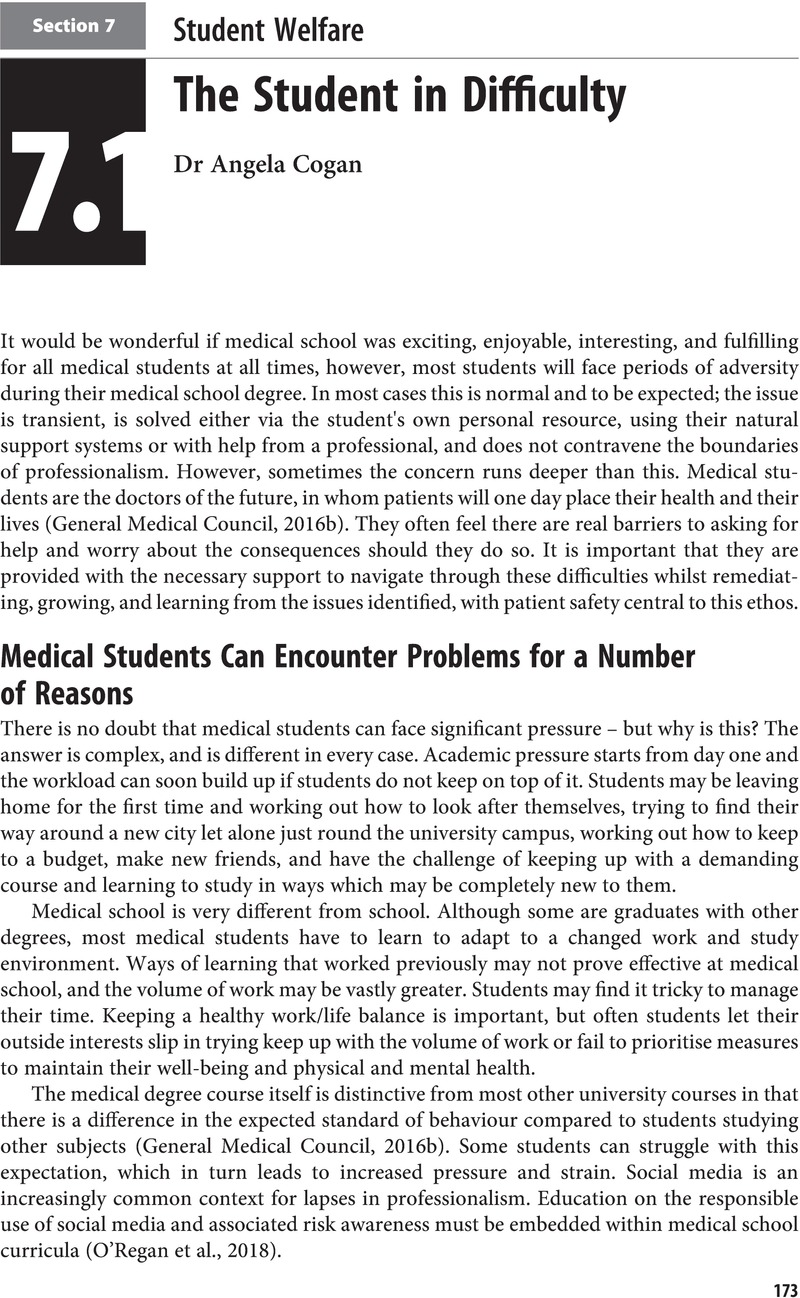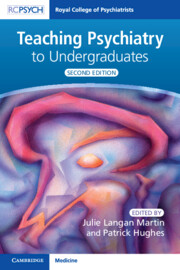Book contents
- Teaching Psychiatry to Undergraduates
- Teaching Psychiatry to Undergraduates
- Copyright page
- Contents
- Contributors
- Section 1 Principles of Medical Education
- Section 2 The Undergraduate Psychiatry Curriculum: Planning and Delivery
- Section 3 Clinical Placements in Psychiatry
- Section 4 Formal Teaching
- Section 5 Materials Development
- Section 6 Gathering feedback and quality improvement
- Section 7 Student Welfare
- Section 8 Developing as a medical educator
- Index
- References
Section 7 - Student Welfare
Published online by Cambridge University Press: 12 October 2022
- Teaching Psychiatry to Undergraduates
- Teaching Psychiatry to Undergraduates
- Copyright page
- Contents
- Contributors
- Section 1 Principles of Medical Education
- Section 2 The Undergraduate Psychiatry Curriculum: Planning and Delivery
- Section 3 Clinical Placements in Psychiatry
- Section 4 Formal Teaching
- Section 5 Materials Development
- Section 6 Gathering feedback and quality improvement
- Section 7 Student Welfare
- Section 8 Developing as a medical educator
- Index
- References
Summary

- Type
- Chapter
- Information
- Teaching Psychiatry to Undergraduates , pp. 173 - 188Publisher: Cambridge University PressPrint publication year: 2022



